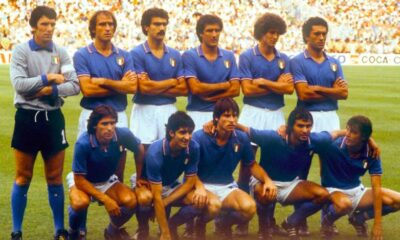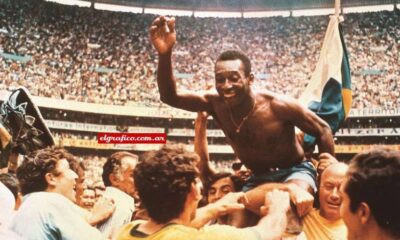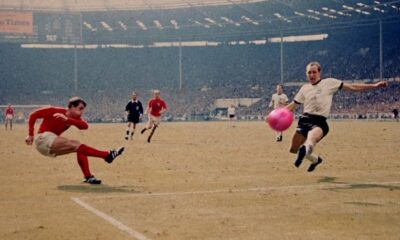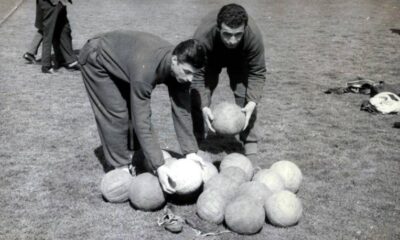Football
Jozef Vengloš: Legend of Czechoslovakia and pioneer of modern football
It is already a year since the death of the former footballer and successful coach who managed to take first and third place with the Czechoslovak team at the European Championships in 1976 and 1980. He also pioneered non-British managers in the English Premier League.
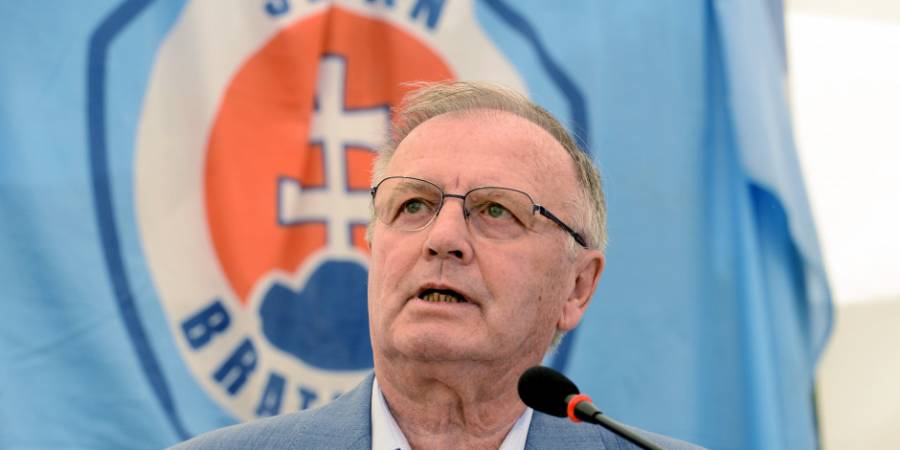
It is already a year since the death of the former footballer and successful coach who managed to take first and third place with the Czechoslovak team at the European Championships in 1976 and 1980. He also pioneered non-British managers in the English Premier League.
Jozef Vengloš was born on 18 February 1936 in Ružomberok, Slovakia, and died last year, on 26 January 2021 to be precise, at the venerable age of eighty-four. He is undoubtedly a Czechoslovak football coaching legend.
Even more rare is the fact that Vengloš played professional football for only one team. From 1954 until 1966 he was a player for Slovan Bratislava. He won the league title with them in 1955 and worked there as a player for 12 years, then served as team captain in a later phase.
Club coaching career
In 1966, he retired from his playing career and moved to Australia. Here Vengloš coached Sydney FC Prague and New South Wales, managing to dominate both the Australian League and the National Cup.
In 1969, however, he returned to Slovakia, where he became coach of VSS Košice, then in 1973 he began coaching Slovan Bratislava, for whom he had previously played. He worked there until 1976, after which he managed to win the league twice and Slovan managed to reach the top step in the cup during his tenure.
After that, however, he took a break from coaching, which lasted seven years. In 1983 he became the coach of Portuguese Sporting, two years later he headed to Malaysia, specifically to the Kuala Lumpur club.
In 1990 he became coach of Aston Villa. It should be noted, at the time, he was the first coach to work in the Premier League who was not originally from the British Isles. However, his engagement was not met with much success and he quit after a year. The team, according to experts, was not ready for his modern methods.
So, although he was only in England for one year, he left his mark and was considered a gentleman by all. Two years later, he became coach of Fenerbahce Istanbul in Turkey.
From 1993 he took a break from club football again. He returned in 1998 when he was appointed coach of Celtic Scotland for one year. He then coached Japan’s United Chiba for a while in 2002.
National team coaching career
During his time with Australian clubs, he also managed the country’s national team. But what needs to be emphasized is that from 1970 to 1972, he led the Czechoslovak under-23 football team, with whom he won the European Championship.
In 1973, he joined the A-team of our national team, where he worked as an assistant to Václav Ježek. Thanks to these two coaches, Czechoslovakia managed to win the 1976 European Championship. Subsequently, in 1978 he became the head coach and remained in this position for four years.
In 1980, he and his national team brought home a bronze medal at the European Championships. However, at the stroke of 1986, he sat on the bench of Malaysia, his stint there lasting only one year. He then returned to the helm of our national team for three years.
In 1993, he became the first coach of independent Slovakia in history, of which he was the head coach for two years. In 1996 he was the head coach of Oman.
Finally…
He is rightly described as the greatest personality of Slovak football. In 2007, he was awarded the Diamond Order by UEFA for his services to the development of football. In Slovakia, he was named the football coach of the 20th century and was included in the Slovak Football Hall of Fame.
He was a pioneer of modern football, which, in fact, he tried to promote across the board. In England he was even ahead of his time by a decade when, as we write above, he tried to apply his modern methods to the Aston Villa team.
Later in his life, he and his sons, Joseph and Juraj, founded an academy for the development of footballers and the education of coaches.
His motto was “Nothing in the world that is worth anything goes without hard work and increased effort. “He always said he had a great job and was perfectly happy with his life. We would like to remind you of his fantastic career, which helped to develop not only Czechoslovak but also world football.
Source:: ŠK Slovan Bratislava, iSport





